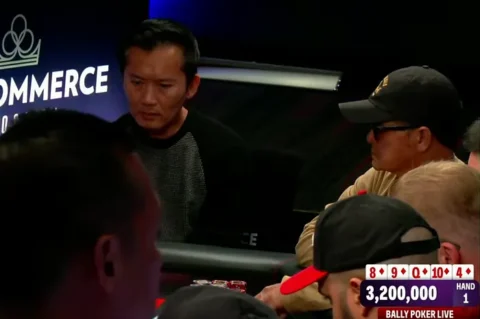The four poker plays I’m about to share with you are mostly used when your opponent doesn’t hold much of a hand. Because of this, I often attack these plays with raises. Without any further ado, let’s jump in.

Image credit: itpro.co.uk
1. Limping Into the Pot
Aggressive poker is winning poker. Limping into the pot is the most passive preflop play somebody can make. It tells me, “I have a hand I want to see the flop with, but it’s not good enough to commit more than just one big blind.”
Most limpers are weak and passive, and I love seeing limpers on my tables. The more limpers (targets) the merrier.
I love isolation raising these limpers with solid hands, especially with position. When a target limps under the gun, and I hold a hand like A9s, KTs or 88, I love raising it to 5-6bb. The goal is to get them heads up on the flop. Players who limp in preflop make loads of post-flop mistakes, so there are many ways to profit from them, or blow them off their hand, depending on the board.
And if the limper folds to my raise? Great, easy money! Never frown when you take it down.
2. Small Blind Open-raise
The looser the player, the less respect I give to a SB open-raise. It’s folded to them, they only have one player left, so why not steal? I steal from the SB 31% of the time according to PokerTracker 4 (learn how to use PokerTracker 4 to find all your statistics and win rates here).
I’m not one of the loosest players at any table, and I don’t even deserve respect when opening in the SB.
I’m looking for wide open-raisers who steal > 20% of the time.
I attack their SB opens with 3bets. But I don’t just 3x their bet. I want to send a message that I’ve got the goods, and if they want to play, it’ll cost them. So, I 3bet to 9 or 10bb.
Some SB openers make it 2-2.5bb in hopes you’ll just 3x it to 6-7.5bb. Don’t make their call easy. Go bigger and get ‘em to fold.
3. 1-2bb Donk Bets
Donk bets are out of position bets against the preflop raiser; they preempt the cbet.
Donk bets deserve respect in general, but especially when it’s only 1-2bb.
These are simply blocking bets with a weak pair or draw. A fishy player flops a flush draw or 2nd pair, but they don’t want to check-call a larger bet to see the turn. They hope you allow them to see the turn at their price.
Don’t allow this!
Raise them to about 80% pot, but expect a call. In a 7bb pot, they donk 1bb, you raise to 8bb. If they donk 2bb, you make it 10bb.
Because you expect a call, don’t raise every tiny donk bet. On a flop of 986, you hold 22, just call or fold instead.
Raise for value with top pair or better. Also do it when you have tons of equity with combo draws. The board is 9h 8s 6h. You hold Ah7h for an overcard Ace, the nut flush draw and the open-ended straight draw. Don’t allow him to set his own price to see the turn. Raise him to maximize your hand’s flopped equity. If he calls, assess the turn and check, bet or raise again as necessary.
4. ⅓ Pot Cbets on Wet Boards
Imagine the flop is 9h 8s 6h, and you were the preflop raiser with AsAc. Would you cbet just 1/3 pot? Most likely not. That’s a wet board and you don’t want to allow such a cheap turn.
You’re likely going ⅔-¾ pot.
So, when they cbet ⅓ pot on that wet board, they’re telling you they don’t hold an overpair.
Attack!
All types of players make this play, but it’s a more reliable sign of weakness when LAG and TAG players do it. They pay attention to flop texture, and they realize how susceptible their strong hand is on the wet board.
Bluff raise to 3.5-4.5x their bet. This looks even stronger if you timed down before checking from out of position. It’s like it took some time for you to think about the best way to play your strong hand. This time-down plus the large raise size will tell them you have an incredibly strong hand.
Bluff raises work just as well when you hold position, because they realize they’ll be out of position on the turn and river and they can expect more bets from you.
In case they call, you want to have a plan for which turn cards you can barrel on, especially when out of position. A one-and-done bluff raise can work, but a barrel puts maximum pressure on them to continue.
Enjoy disrespecting your opponent’s weak plays!
















